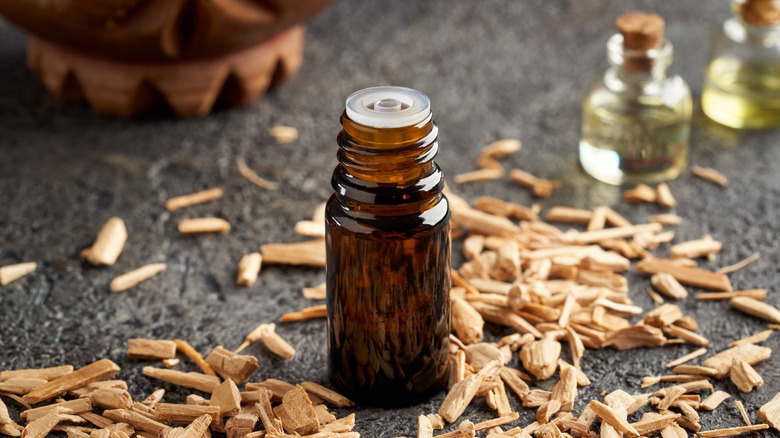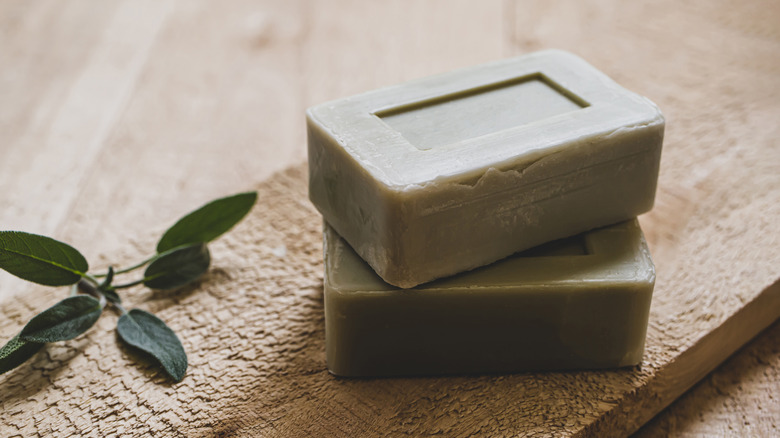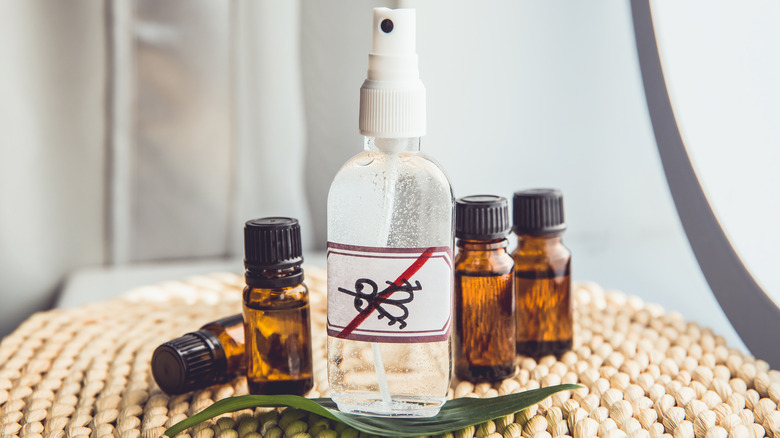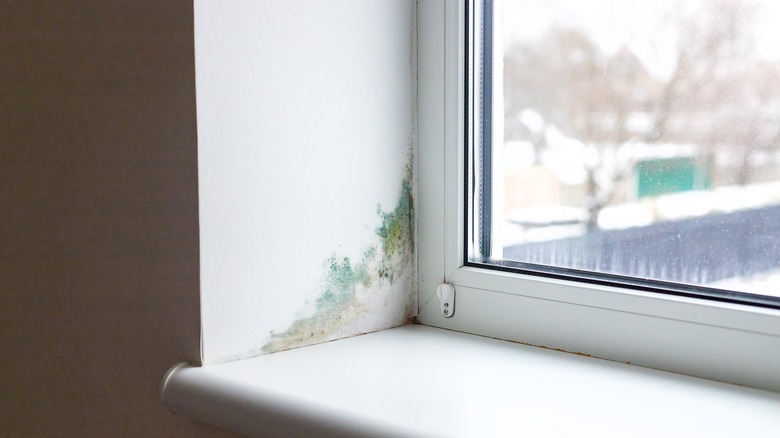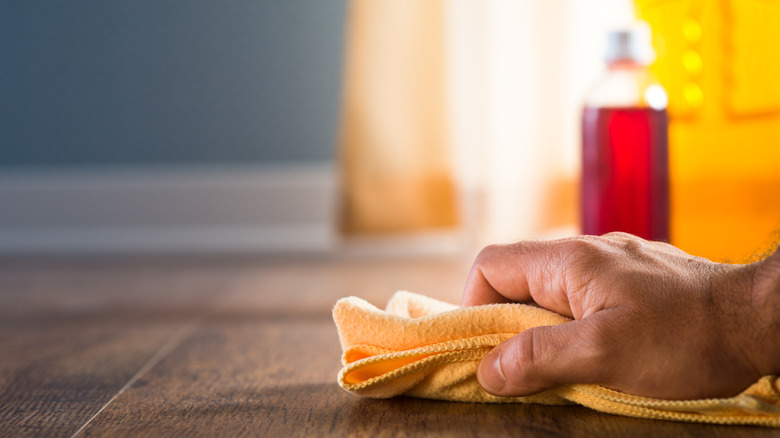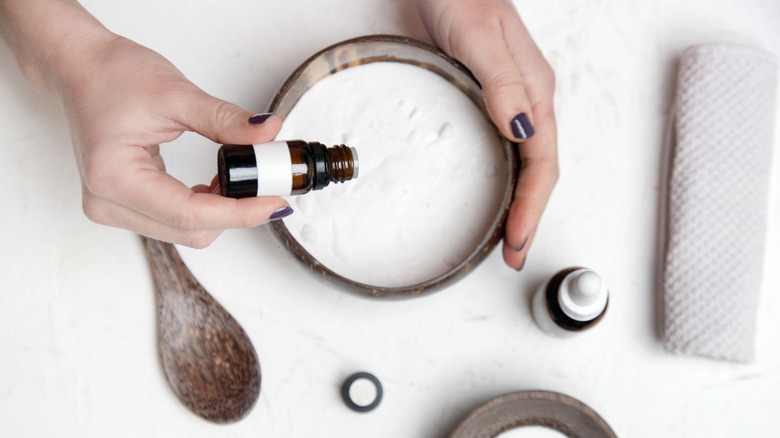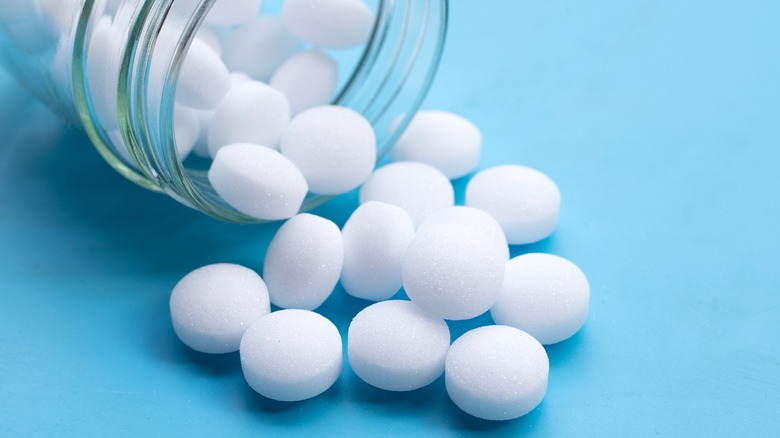Ways You Can Use Cedarwood Essential Oil In Your Home
Essential oils can be used in a variety of ways in the home. Some of the most common uses include diffusing, topical application, and cleaning sprays. They're amazing items to have in your home inventory because of their many properties, such as being antiseptic, deodorizing, and antifungal. Cedarwood essential oil is one of the best and most versatile oils you can have, mainly for the astounding ways it can be used in your home.
Cedarwood oil is extracted from the wood of the cedar tree and has a warm, woody aroma that promotes relaxation. Although it has many therapeutic and healthcare properties, its home benefits are wide-ranging. You can use this oil as an insect repellent, natural deodorizer, wood treatment, cleaning spray, and more. It can also be used to give decor pieces a touch of that outdoor scent. Let's look more closely at ways to use cedarwood essential oil in your home.
Use it as a natural germ-fighter
Cedarwood essential oil is known for its antimicrobial properties, which means it can fight against various types of microorganisms, such as bacteria, fungi, and viruses. Essential oils have been used to fight infections since ancient Egypt and continue to be used in soaps and surface sprays for this very purpose. The main compounds in cedarwood oil help prevent the spread of infections and promote a healthy living environment.
When shopping for soap or surface spray, check the ingredients for cedarwood essential oil, though you can easily make your own at home. For a homemade soap, you'll need 1 pound of melt-and-pour soap base, 1 tablespoon of dried cedarwood shavings, 20 to 25 drops of cedarwood essential oil, and a soap mold of your choice. You'll want to first melt the melt-and-pour in a double boiler or microwave. Once it's melted, add the cedarwood shavings and essential oil drops. Finally, add the mixture to the mold and let it harden. Now you have your own cedarwood soap to fight germs.
Create a powerful insect repellent
Cedarwood essential oil is a natural insect repellent due to its unique chemical composition, which disrupts insects' neurotransmitters, causing confusion and disorientation. Because insects are drawn to human sweat, cedarwood is ideal for masking those scents, which lures them in the opposite direction. So if you're looking to keep insects out of your home, there are some ways you can use cedarwood essential oil to help.
For starters, you can create a simple spray that you can mist around your windows and doors. You'll need 2 cups of distilled water, 2 tablespoons of witch hazel or vodka, 20 to 30 drops of cedarwood essential oil, and a spray bottle. Once all the ingredients are inside, shake well and spray around entrances to your home. You can spray as needed, though cedarwood has a long-lasting effect, which means it will repel insects for several hours. If you're having an outdoor gathering, spray your furniture with the mixture or burn some cedarwood candles around the area.
Combat mold and neutralize odors
Cedarwood oil has natural antifungal and antimicrobial properties that effectively combat mold and odors. It can help prevent the growth of mold and mildew, which then reduces the musty odor that often accompanies this kind of bacteria. It also has the ability to control moisture levels in your home as well as kill germs that cause unpleasant odors. If you have mold spots or want to get ahead of them, all you have to do is create a simple spray that is safe, effective, and easy to make. Just remember that this will help areas with small amounts of mold, not large outbreaks.
You'll need 2 cups of distilled water, 1/4 cup of white vinegar, 20 to 30 drops of cedarwood essential oil, and a spray bottle. Mix the ingredients together and store the bottle in a cool, dry place when not in use. To use the mixture for mold, spray it onto surfaces where you suspect growth. This could include walls, ceilings, or other areas that are prone to moisture. Let the spray sit on the surface for several minutes, then wipe it away with a clean cloth. Reapply the spray as needed, or as part of your regular cleaning routine.
Restore untreated woods and floors
Cedarwood oil is a natural and effective way to treat unfinished wood, as it can help protect the wood from moisture and pests. It also provides a pleasant, woody aroma. When applied to untreated wood, it protects it from damage and decay. The best part is you can create several products to help, like wood polish and wood preservatives, or apply them directly using an eyedropper or cloth. It's safe to use on hardwood floors and can give fresh life to wooden utensils or decor pieces.
To create a wood polish, mix 1/4 cup of olive oil with 10 to 20 drops of cedarwood essential oil. You can apply the mixture to the wood with a cloth and watch the wood's natural shine return in minutes. To create a natural wood preservative, mix 1 cup of mineral oil with 20 to 30 drops of cedarwood oil. Like the polish, apply this mixture with a clean cloth and let it soak for several hours. This is ideal for keeping pests away. You can also apply the oil directly to the wood during your regular cleaning routine.
Create your own cleaning products
Cedarwood essential oil has several properties that make it well-suited for cleaning. Besides being antibacterial and antifungal, it's safe and non-toxic to use around pets and children. It's a simple, eco-friendly cleaning solution that, as we mentioned before, is perfect to add to your regular cleaning supply arsenal. It can be made into several cleaning products that combat a ton of toxic bacteria that build up in your home over time. For example, you can make an all-purpose cleaner with equal parts water, white vinegar, and 10 to 15 drops of essential oil. Use it to clean surfaces such as countertops, floors, and bathroom fixtures.
Cedarwood oil can also make a powerful carpet deodorizer. Simply mix 1/2 cup of baking soda with 10 to 15 drops of cedarwood oil and sprinkle the mixture over your carpets. Let it sit for 15 to 20 minutes before vacuuming it. This will help to neutralize odors and freshen up your carpets. Finally, you can make a laundry freshener with cedarwood oil by adding 10 to 15 drops to a spray bottle filled with fresh water. Spray the mixture onto your clothes or linens before folding them, giving your laundry a natural, fresh scent.
Make protective mothballs for your closet
We mentioned earlier how cedarwood oil is great for repelling insects because of its natural compounds, so an ideal place to use it is in your closet. If you've had trouble with moths in the past, you can create protective mothballs using cedarwood essential oil, as it will disorient and confuse the moths. This will prevent them from laying eggs in your clothes or other textiles. Since cedarwood is non-toxic, it's safe to use on or near clothes. To avoid using traditional mothballs made with toxic chemicals, here is how to make your own.
All you'll need are cotton balls or small pieces of fabric and cedarwood essential oil. Take some of the cotton balls or fabric and place them in a bowl. Add a few drops of cedarwood oil, making sure to saturate them well. You'll then place the scented cotton balls or fabric into either a small sachet or muslin bag. You can then put them in your drawers, hang them on hooks, or set them in areas where you want to repel moths. You can also add other insect-repelling essential oils, such as lavender, rosemary, or peppermint, to enhance the effectiveness of the mothballs. For the best protection, replace the sachets or bags every few months or when the scent begins to fade.
